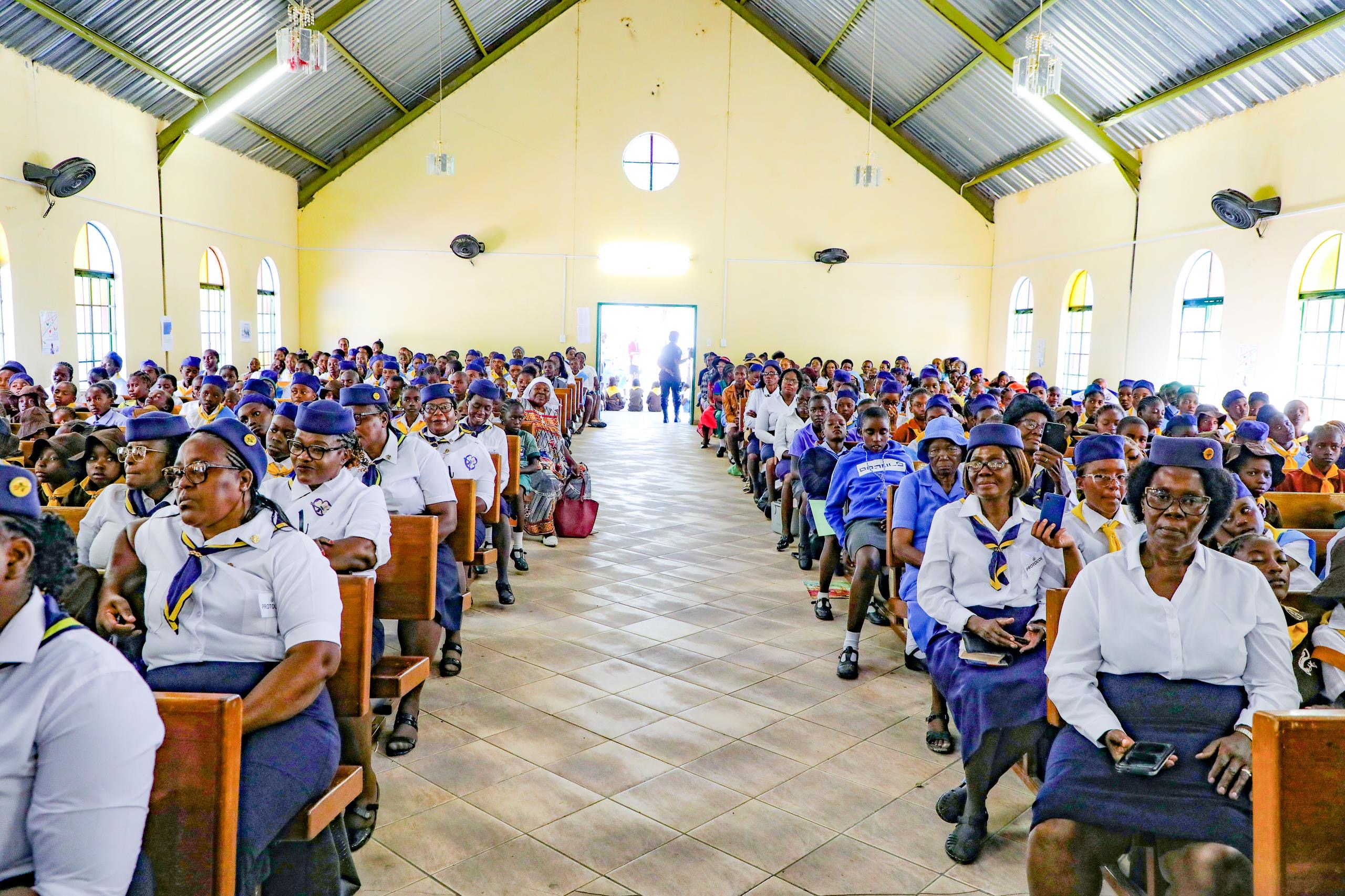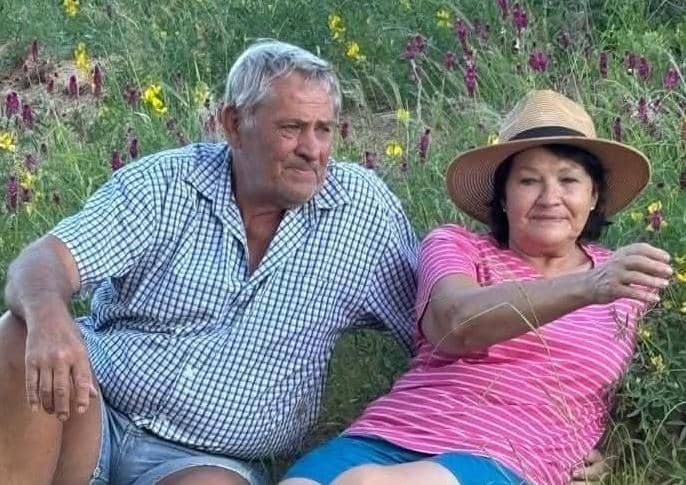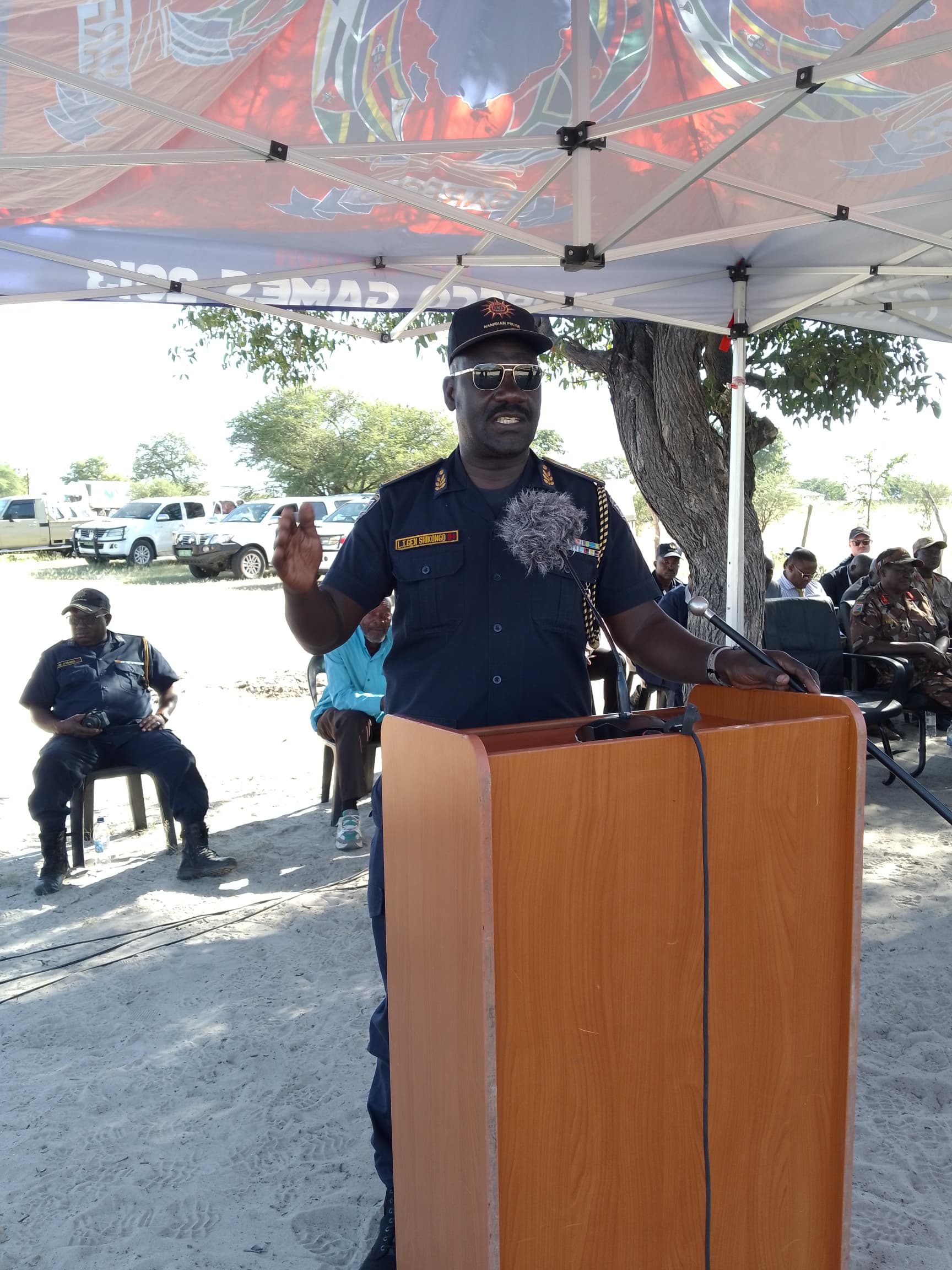THE world’s oldest customs union, the Southern African Customs Union (Sacu) will be 100 years old next year. While several milestones have been reached during that century, new challenges lie ahead.
Sacu’s five member states – Botswana, Lesotho, Namibia, Swaziland and Africa’s largest economy, South Africa – are also members of a larger regional bloc, the Southern African Development Community (SADC) with 14 member states. SADC wants to establish its own customs union by 2010. A SADC Free Trade Area (FTA) was launched last year. Sacu members have an agreed set of common external tariffs for the import and exports of goods, and share the revenue earned through customs and excise via a formula. In the case of Namibia, the revenue is around N$8 billion a year. Will Sacu be absorbed into the larger customs union or will Sacu gradually increase its membership? How do overlapping memberships of states in different trade blocs affect the goal of deeper integration? The Namibian interviewed Sacu Executive Secretary Tswelopele Moremi of the Windhoek-based Sacu Secretariat last week. ‘Studies were conducted by our Secretariat to investigate this and which direction Sacu should take since its members are committed to deeper regional integration and at continental level,’ Moremi said. ‘The easiest way to achieve the bigger customs union would be to use the one (Sacu) already in place,’ Moremi added. According to her, Sacu’s highest decision-making body, the Council of Ministers, decided that Sacu should be used as a nucleus for a SADC customs union. This assumes a gradual expansion of Sacu to include new members.EPA WITH EUThe expansion of Sacu will have implications for the existing common revenue pool. ‘Sacu members need to debate whether the current arrangement is sustainable with an expanded Sacu,’ Moremi told The Namibian.SADC is currently negotiating Economic Partnership Agreements (EPAs) with the European Union. ‘There are seven countries in the SADC EPAs, with all five Sacu countries are part of this. Only Angola and Mozambique in this arrangement do not belong to Sacu. We have taken an interest in the EPA negotiations. At Secretariat level we monitor developments and assist our member states and keep track of how some of these issues will be impacting on them,’ said the Sacu Executive Secretary.’The negotiations over the last year or so have put a lot of strain on Sacu to the extent that not all its member states have agreed on how to approach the negotiations. Their interests were different and for the first time, Sacu found itself in a difficult situation. The idea is to get all its member states to move in tandem and protect the integrity of the customs union. At the Sacu Council of Ministers retreat held last year August in Botswana, the ministers indicated that they would like to re-strategise and move together as a block. I’m happy to note that from the EPA meetings that took place in Swakopmund last week there seems to be a lot of progress made in those negotiations that address also some of our own member states’ concerns and there was recognition that there is still room to bring parties together,’ Moremi told The Namibian. According to Anton Faul, director for policy development and research at Sacu, who was present during the interview, the economic realities around the EPA negotiations and the envisaged SADC customs union necessitate common decisions among southern African states in order to foster and forge ahead with deeper regional integration. ‘More interaction is required to meet these realities and to obtain the best outcomes, especially for smaller states,’ said Faul.2009 FOCUS It has been seven years since a new Sacu agreement was signed in 2002 and five years since the Sacu Secretariat was set up in Windhoek in July 2004 – time to reflect, Moremi says.’The Secretariat, which was started from scratch, is now fully functional with its directorates running with most vacancies filled, except for a gap here or there’. With regard to the implementation of the 2002 Sacu agreement, the focus for 2009 will be promoting further integration of the Sacu economies into the global economy through trade negotiations, the establishment of the outstanding Sacu institutions, policy harmonisation and trade facilitation. ‘Priority will be given for a smooth implementation of the Sacu-EFTA agreement (with Iceland, Liechtenstein, Norway and Switzerland), which came into force in July 2008. The focus will be to ensure that Sacu takes full advantage of the agreement by assisting all member states set up all the administrative institutions and procedures necessary. In addition, focus will be on the finalisation of the Mercosur agreement with Latin America. This should be signed by both parties and implemented in the first half of 2009. Sacu has also prioritised the negotiations with India,’ Moremi said.This year, Sacu will recruit the co-ordinator for the Tariff Board. The co-ordinator will assist the five members to establish national bodies in their countries ‘We should have the Board operational before the end of 2009.’ Another priority is the completion of the industrial policy framework. This will facilitate the work of the Tariff Board. Achieving greater co-operation on a common agriculture policy is another target. To date, an assessment of the agriculture sector in the Sacu region has been done and efforts are under way to establish the key areas for co-operation. The Sacu Council also approved a comprehensive customs reform project, which will start next month, focusing on customs legislation, policy and IT systems to reduce the cost of doing business in the region. CENTENARY COMMEMORATIONNext year, Sacu will be 100 years old and the world will look at Namibia and its four neighbours how this will be celebrated. ‘The centenary will definitely be a festivity and we are already planning for this,’ says Moremi. ‘The year 2010 and beyond will see a more consolidated Sacu and deepening levels of regional integration in southern Africa. Sacu has a role to play in its second century and will do so,’ Moremi says.Sacu is the world’s oldest customs union and dates back to the 1889 Customs Union Convention between the British Cape Colony and the Orange Free State Boer Republic. A new agreement, signed on June 29 1910, was extended to the Union of South Africa and the British High Commission Territories (HCTs): Basutoland (Lesotho), Bechuanaland (Botswana), and Swaziland. South West Africa (Namibia) ‘was a de facto member, since it was administered as part of South Africa’ before it became a de jure member after Independence. The primary goal was to promote economic development through regional co-ordination of trade. The 2010 agreement entailed a common external tariff (CET) on all goods imported into the Union from the rest of the world; a common pool of customs duties as per the total volume of external trade; and excise duties based on the total production and consumption of excisable goods. It allowed free movement of Sacu manufactured products within Sacu, without any duties or quantitative restrictions, a revenue-sharing formula for customs and excise revenues collected by the Customs Union. In 1925, South Africa adopted import substitution industrialisation (ISI) policies, backed by the common external tariffs on non-Sacu products. These measures guaranteed a regional market for South African manufacturers, while relegating the British High Commission Territories to producing primary commodities. Under apartheid, South Africa was the sole administrator of the common Sacu revenue pool, setting Sacu import duties and setting excise policy. In 1969 a better agreement was signed with Swaziland, Botswana and Lesotho being sovereign states.With Namibia’s Independence in 1990 and the end of apartheid in South Africa in 1994, Sacu members embarked on new negotiations in November 1994, which culminated in a new Sacu agreement in 2002 and implemented since 2004. The 2002 SACU agreement provides for a democratic, joint decision-making and transparent dispensation for Sacu.
Stay informed with The Namibian – your source for credible journalism. Get in-depth reporting and opinions for
only N$85 a month. Invest in journalism, invest in democracy –
Subscribe Now!










